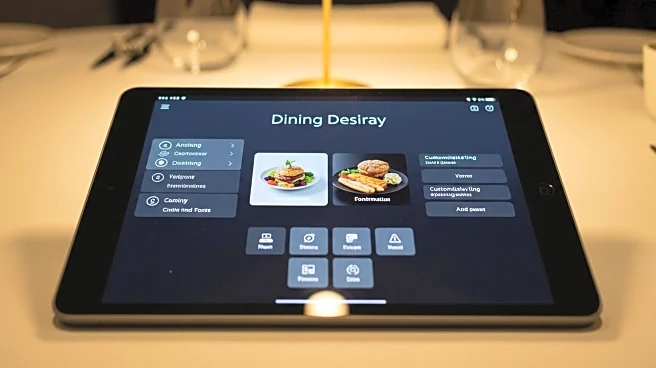What is the story about?
What's Happening?
Agilysys, Inc., a provider of hospitality software solutions, has released its 2025 Food Service Management Industry Impact Study, revealing a significant 'Aspiration-Readiness Gap' in the food service sector. The study surveyed 412 executives and technology decision-makers across various sectors, including healthcare, higher education, and restaurants. It found that while 68% of food service executives aim to deliver preference-driven dining experiences, 50% feel unprepared due to infrastructure limitations. The study highlights the potential of preference-driven dining to increase consumer spending by up to 50% per transaction, yet many executives cite budget constraints and the need for technology upgrades as barriers to implementation.
Why It's Important?
The findings of the Agilysys study underscore the growing consumer demand for personalized dining experiences, which can significantly boost revenue for food service providers. However, the readiness gap suggests that many organizations may miss out on these opportunities due to inadequate infrastructure and resources. This gap presents a challenge for the industry, as failing to adapt could result in losing competitive advantage to those who invest in technology and processes that cater to individual customer preferences. The study emphasizes the need for food service providers to balance operational efficiency with personalized experiences to remain competitive and drive growth.
What's Next?
Food service executives are encouraged to consider technology transformations, such as switching POS providers, to enable preference-driven dining. However, only 40% are ready to take action, indicating a cautious approach due to concerns about implementation difficulty and upfront costs. The study suggests that embracing technology that integrates operational efficiency with personalized customer experiences is crucial for achieving Experience-Driven Dining Excellence. This transition could set new standards in the industry, offering personal and profitable dining experiences while maintaining operational excellence.
Beyond the Headlines
The study highlights a shift in the food service industry towards a more personalized approach to dining, reflecting broader trends in consumer expectations for tailored experiences. This movement could lead to long-term changes in how food service providers interact with customers, potentially redefining industry standards and practices. The emphasis on technology and personalization also raises ethical considerations regarding data privacy and the balance between automation and human interaction in service delivery.















